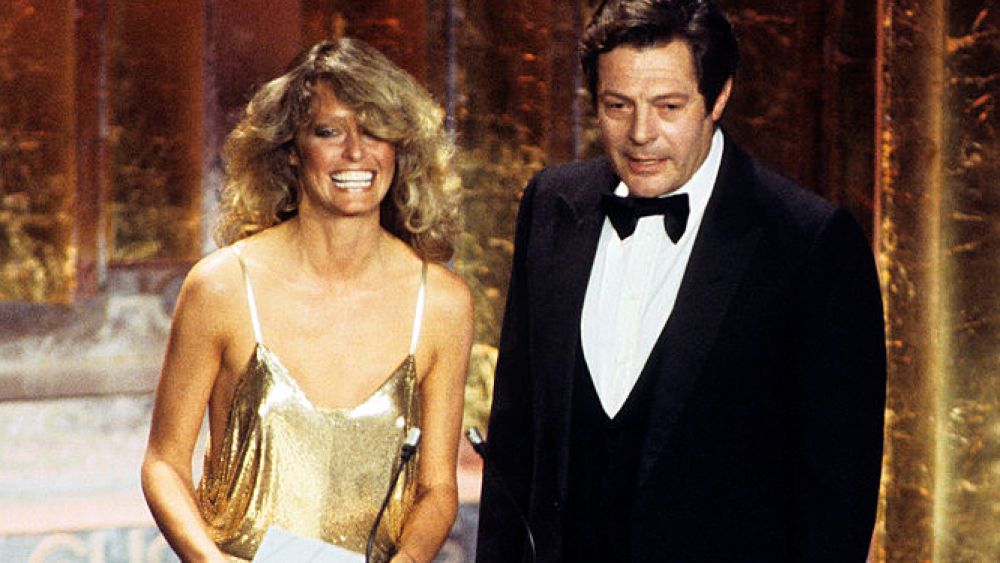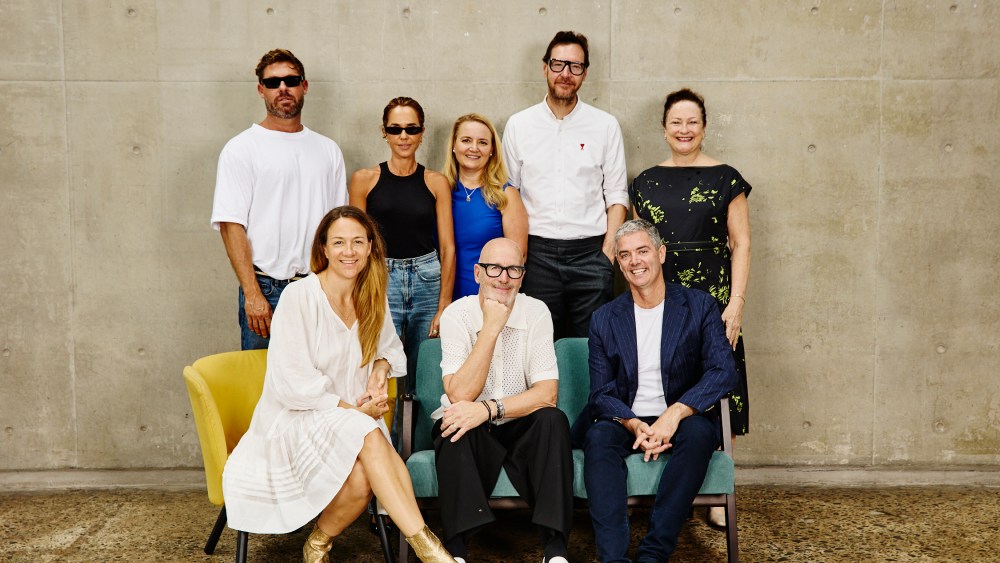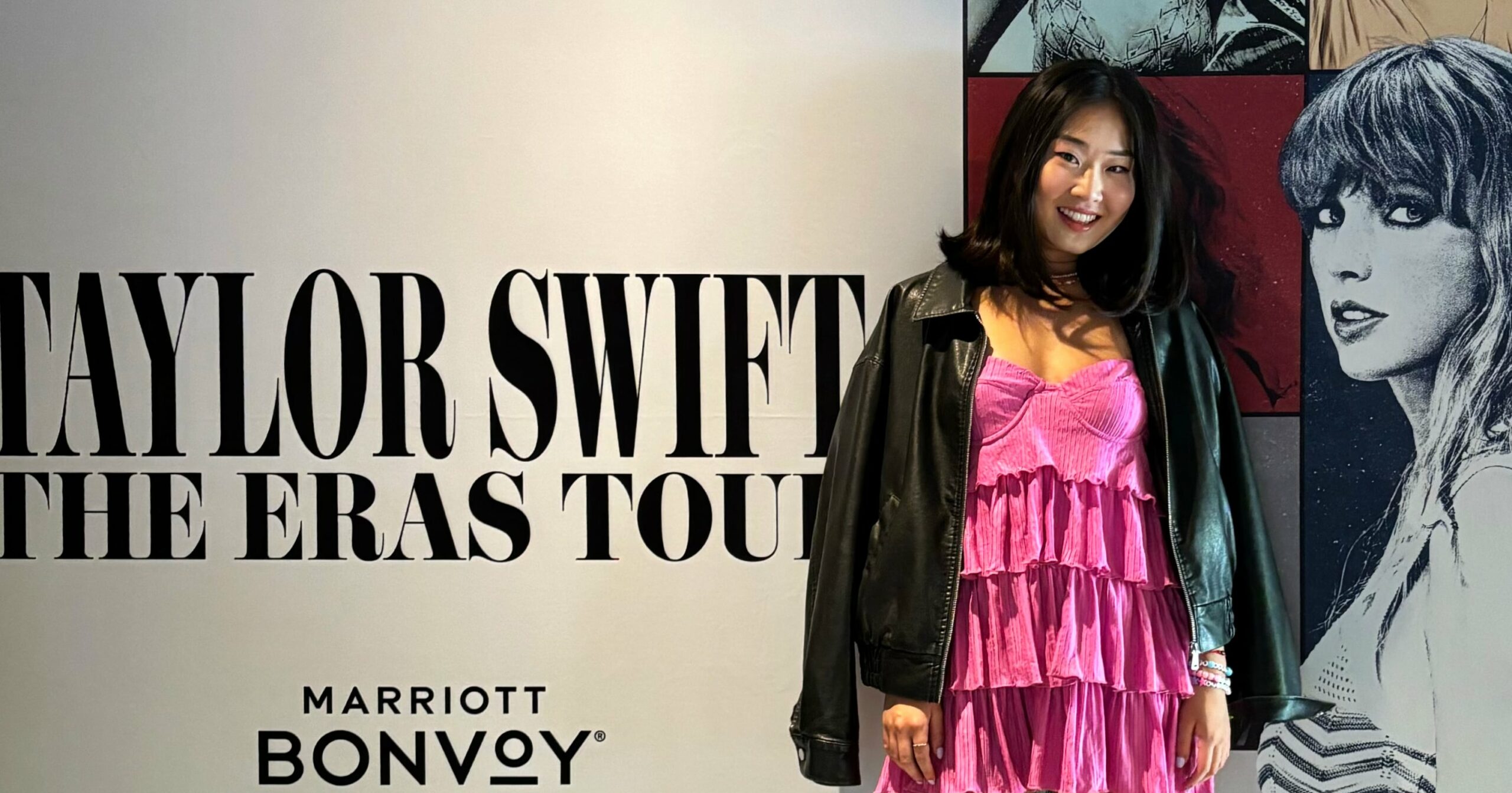In honor of what would have been the prized actor Marcello Mastroianni’s 100th birthday, his daughter Chiara kicked off a retrospective of his work at the Museum of Modern Art Thursday night
Running through Jan. 5, “Marcello and Chiara Mastroianni, A Family Affair” highlights 17 of his films including three that have been fully restored in digital 4K by Cinecittà — “Le Notti Bianche” (White Nights), “Peccato che sia una canaglia” (Too Bad She’s Bad), and “La fortuna di essere donna” (Lucky to Be a Woman.)
The Italian actor, who was born Sept. 26, 1924, died Dec. 19, 1996, at the age of 72.
During the cocktail party, Mastroianni said, “It’s surreal, to be honest, because I remember coming to the MoMA as a teenager the first time that I came to New York. This place is such a temple of art and magnificent. I never would have imagined to be back under these circumstances. It’s very surreal and very moving at the same time,”
Although the Italian French actress and singer never had the chance to visit New York with her father, who loved New York, she said, “It’s a way to come with him, even if he’s not here anymore. It’s very special. Even my kids couldn’t believe it, when I told them we would be showing his films at the MoMA. It’s one of my favorite museums in the world.”
As for what Marcello Mastroianni would have made of the film festival, his daughter said he would have laughed, because he was a bit of a shy person. More comfortable not getting too much attention, he preferred to place the attention on the films and the filmmakers,” she said. “This, of course, is the whole idea of a retrospective. Yes, it’s one actor. But it’s through him, that we’re bringing back some beautiful movies from the past and for many people to discover for the first time. Many people now don’t even know who Mastroianni is.”
While her hope is that younger generations might discover this work, Mastroianni said more than anything, the three-week event is a beautiful homage to cinema. Her favorites include Federico Fellini’s “8 ½.” As much talk as there is about the famed director’s form, she praised the subjects and the dialogues in his films. “A Special Day” with Sophia Loren and “Divorce Italian Style” were two other favorites. Allowing that, it is much easier for me to talk about him than to talk about me, and I have a true passion for the work he’s done and for those filmmakers. Some of them I had the chance to meet, when I was a child or a teenager.
Dressed stylishly in Celine, Mastroianni (whose mother is Catherine Deneuve) said her father hated brands. “I think [if he were] in the world of today with logo tyranny, he would go nuts.”

That said, the Italian actor had “really great style,” and would travel to London to buy John Loeb shoes, because that was the only place they were available. He also had his own tailor in Rome for custom suits. She noted how fame came later in life for her father, who worked with the director Luchino Visconti for 10 years, before his breakout role with Fellini in “La Dolce Vita.” Although she does not want to bore people in conversation with stories about her father, she welcomes the chance to share them publicly. “It’s a wonderful occasion to talk about people we miss without ruining the atmosphere [in a room],” she said.
Later during her public remarks, Mastroianni mused about how her father might have laughed about the celebration of his centennial, since he “never even had a party on his own birthday. But we are here to celebrate his 100th. And he’s not here to say no.”
The famed star never had a career plan, preferring to be more instinctive instead. His engagement in life and toward some subjects, including some that were political, leaned more toward thought-provoking. Many considered him to be the epitome of the Latin lover, due to his Italian masculinity and his role in “Beyond the Latin Lover.” Mastroianni said that moniker “really upset him, because it reduced his talents as an actor — not that he thought of himself as a talented actor.”
Making the point that his role in “La Dolce Vita” is a story about “a loser, who is seduced but never manages to seduce anybody,” she said the film was considered rebellious, when it was released and it caused a scandal with the Vatican. (The Vatican condemned the film, and it was banned in Spain until 1978.) She also noted how he always chose films that contrasted the previous ones such as following up “La Dolce Vita” with “Il bell’Antonio.” He told me, and he had said in interviews, ‘OK, you call me a Latin lover, I’m going to play a mean impotent now.’”
The actress, whose film “Marcello Mio” was set to premiere at MoMA Friday, also spoke of the need to recognize the amount of work and energy that film restoration requires, and how Martin Scorsese has invested a lot of money through The Film Foundation to restore the work of other filmmakers so that they have some resonance today. “So I say, ‘Hooray to cinema.’ This is a way to celebrate cinema above everything.”



